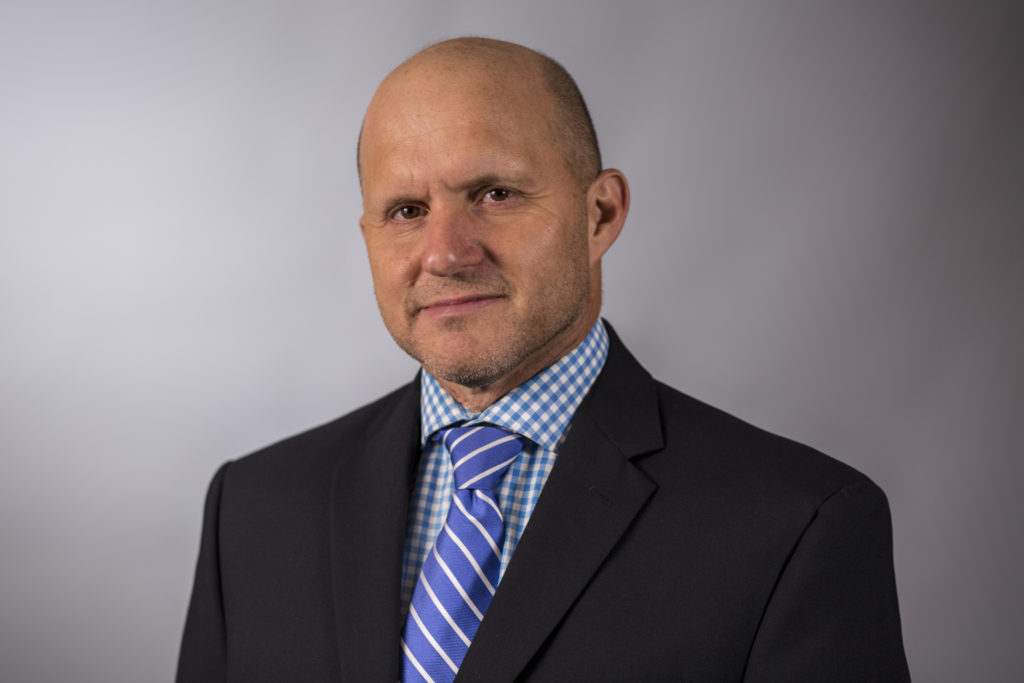Throughout 2017 MDA awarded a number of research, development and venture philanthropy grants to individuals dedicated to finding treatments and cures for Amyotrophic lateral sclerosis (ALS). Whether trying to shed light on the disease’s underlying mechanisms, working to discover new drugs to treat the disease, or studying new genes that have been linked with ALS, these researchers are working to accelerate the search for a cure.
 Five Questions with Researchers Michael Benatar and Jonathan Katz
Five Questions with Researchers Michael Benatar and Jonathan Katz
Michael Benatar and Jonathan Katz at California Pacific Medical Center in San Francisco, were awarded a clinical research network grant to support their work on the Clinical Procedures To Support Research (CAPTURE) project, which aims to implement the “ALS Toolkit” within the Epic Electronic Health Record System. The ALS Toolkit provides a mechanism to systematize the collection of clinical data so that it can also be used for ALS research.
MDA Grant Will Support Development of ALS Biomarkers as a Predictive Test
MDA awarded an MDA Venture Philanthropy (MVP) grant totaling $233,200 to Scottsdale, Ariz.-based Iron Horse Diagnostics to support development of a prognostic (predictive) test for ALS.
Such a test could help improve and accelerate clinical trials and speed the development of life-saving drugs to individuals with ALS.
$96,360 MDA Award to Izumi Biosciences Will Support Development of ALS Drug Combination
MDA has awarded an MDA Venture Philanthropy (MVP) grant totaling $96,360 to Lexington, Mass.-based Izumi Biosciences, Inc., to fund early-stage development of IZ10023, a type of drug called a “pharmacokinetic (PK) enhancer,” for use in people with ALS who are taking riluzole.
Timothy Miller of Washington University Will Work to Shed Light on ALS
Timothy Miller, professor of neurology at Washington University in St. Louis, was awarded an MDA research grant totaling $282,417 over three years to shed light on ALS disease mechanisms. The results from Miller’s work could have important implications in the understanding and treatment of C9ORF72 ALS. In addition, DPRs could serve as biomarkers that could directly inform the design of future clinical trials.
 Five Questions with ALS Researcher Udai Pandey
Five Questions with ALS Researcher Udai Pandey
Udai Pandey, associate professor at the Children’s Hospital of Pittsburgh in Pennsylvania, was awarded an MDA research grant totaling $300,000 over three years to identify new drugs for ALS caused by a mutation in the FUS gene.
Five Questions with ALS Researcher Fen-Biao Gao
Fen-Biao Gao, professor at the University of Massachusetts Medical School in Worcester, was awarded an MDA research grant totaling $300,000 over three years to enhance understanding of pathogenic (disease-causing) mechanisms and identify new drug targets for ALS.
Five Questions with ALS Researcher Jie Jiang
Jie Jiang, postdoctoral fellow at the Ludwig Institute for Cancer Research, University of California – San Diego, in La Jolla, Calif., was awarded an MDA development grant totaling $180,000 over three years to improve understanding of the disease mechanisms underlying the most common inherited form of ALS.
Five Questions with ALS Researcher Eric Shoubridge
Eric Shoubridge, at McGill University in Montreal, Québec, was awarded an MDA research grant totaling $287,169 over three years to study a new mitochondrial gene linked to ALS. Mitochondria are the tiny energy factories found inside most cells.
If successful, Shoubridge’s work could lead to important insights into the involvement of mitochondria in ALS and reveal new drug targets.
Mohamed Farah, assistant professor of neurology and neuroscience at Johns Hopkins School of Medicine in Baltimore, was awarded an MDA research grant totaling $300,000 over three years to investigate whether a drug currently in development for Alzheimer’s disease can improve function in ALS.
Jiou Wang, associate professor at Johns Hopkins University in Baltimore, was awarded an MDA research grant totaling $300,000 over three years to work toward a better understanding of the underlying cause of ALS.
Learn more about MDA grants.
